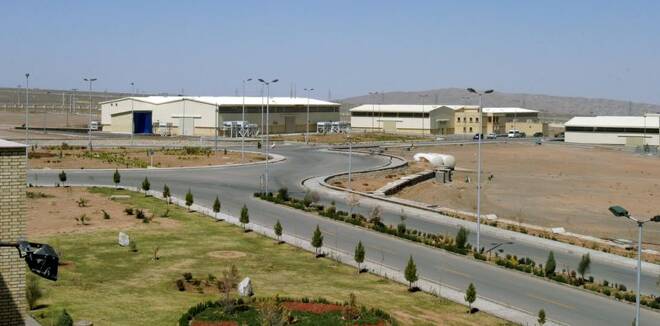Advertisement
Advertisement
U.S. senators voice frustration at Biden’s Iran policy
By:
WASHINGTON (Reuters) - The chances of reviving the 2015 Iran nuclear deal are shaky at best and Washington is ready to tighten sanctions on Tehran and respond to "any Iranian escalation" with Israel and other allies if it cannot be saved, the United States' Iran envoy said on Wednesday.
By Arshad Mohammed, Humeyra Pamuk and Patricia Zengerle
WASHINGTON (Reuters) -The United States said on Wednesday it was ready to tighten sanctions and act with Israel and others to counter the Iranian threat if shaky efforts to revive the 2015 Iran nuclear deal fail, but lawmakers voiced doubts about both options.
“We do not have a deal … and prospects for reaching one are, at best, tenuous,” U.S. Special Envoy for Iran Rob Malley told the Senate Foreign Relations Committee, alluding to indirect U.S.-Iran talks in Vienna that unraveled in March.
Malley’s comments drew fire from senior Democratic and Republican senators, who criticized a possible resurrection of the deal and expressed frustration that they do not know what Democratic President Joe Biden’s “Plan B” will be if talks fail.
Under the agreement, called the Joint Comprehensive Plan of Action (JCPOA) and struck by Iran and six major powers in 2015, Tehran limited its nuclear program to make it harder for it to get a bomb in exchange for relief from economic sanctions.
Tehran has long said its program is for peaceful purposes.
Republican then-U.S. President Donald Trump reneged on the accord in 2018 and reimposed harsh U.S. sanctions, prompting Iran to begin violating the nuclear limits about a year later.
Lawmakers zeroed in on past U.S. statements that the time to revive the pact had all but passed – in February and March the State Department suggested it was only a matter of days – prompting an expression of contrition from Malley.
“When are you going to end (the talks)? When are you going to walk?” said Senator Jim Risch, the panel’s senior Republican.
“I apologize. It’s true that we have said things in the past,” Malley said. “What has always been our guiding star is what are the nonproliferation benefits that our experts tell us and the intelligence community tells us.”
Diplomatic and other sources say the U.S. stance has shifted from earlier this year, when it signaled the nonproliferation benefits would soon cease to justify a return, to a view that some limits on Iran’s program are better than none.
While saying that “all options are on the table” – code for the possibility of military action – Malley said a strike on Iran’s nuclear program would only slow it down, not stop it.
He also blamed the current predicament on Trump’s decision to abandon the deal, a stance Senate Foreign Relations Committee Chairman Bob Menendez, a Democrat, rebuffed.
“Lamenting the past … is not a strategy to move towards the future,” Menendez said.
The senator, who opposed the original agreement, said he did not understand why the Biden administration was still willing to negotiate nor what it would do if talks fail.
“Why is it that we are still keeping the door open?” Menendez said. “What is your Plan B?”
Malley said the United States is working with Israel and European partners to try to deter and respond to any Iranian actions, including attacks on U.S. partners as well as its ballistic missile and drone programs.
He declined to say whether Washington might support censuring Iran at June’s International Atomic Energy Agency (IAEA) board of governors meeting, a step the U.N. nuclear watchdog has repeatedly avoided.
But Malley said he was confident that whatever happened with the nuclear talks, European allies would work with Washington on sanctions enforcement, at the IAEA or to strengthen Gulf Arab allies to counter Iran.
ANALYSIS-Subtle shift in U.S. rhetoric suggests new Iran approach
(Reporting by Arshad Mohammed in Saint Paul, Minn. and by Humeyra Pamuk and Patricia Zengerle in Washington; additional reporting by John Irish in Paris; editing by Jonathan Oatis)
About the Author
Reuterscontributor
Reuters, the news and media division of Thomson Reuters, is the world’s largest international multimedia news provider reaching more than one billion people every day. Reuters provides trusted business, financial, national, and international news to professionals via Thomson Reuters desktops, the world's media organizations, and directly to consumers at Reuters.com and via Reuters TV. Learn more about Thomson Reuters products:
Did you find this article useful?
Latest news and analysis
Advertisement
